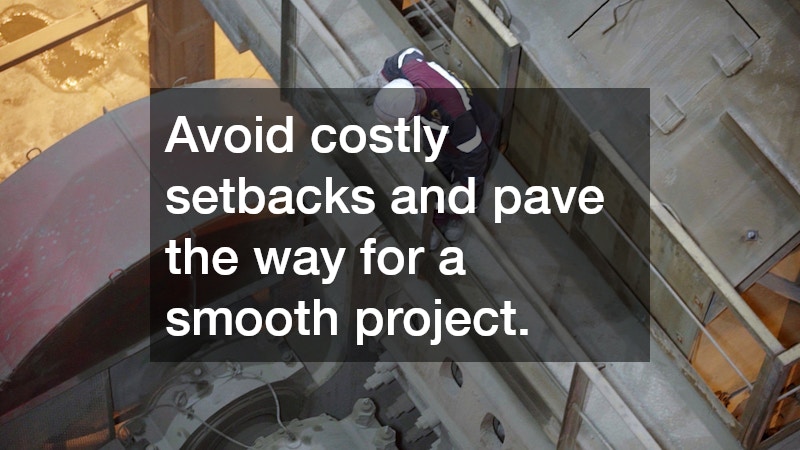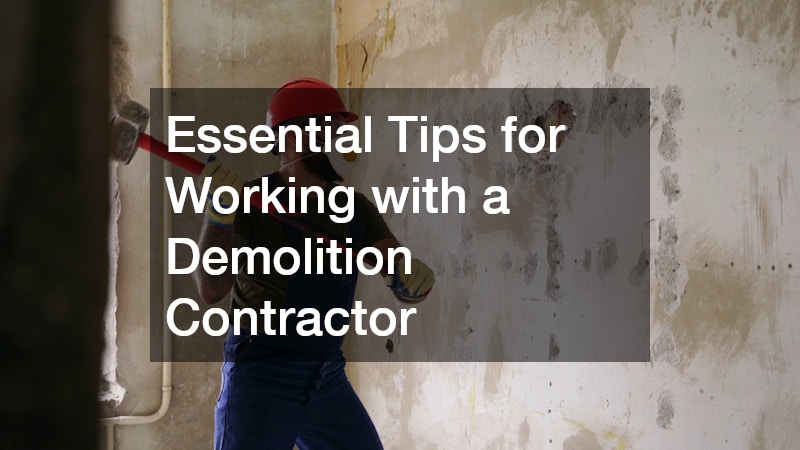Hiring a demolition contractor is a critical step in any project that involves tearing down structures or clearing land for redevelopment. Whether you’re demolishing a residential home, commercial building or internal structure, working with the right professional can ensure safety, efficiency and compliance with regulations.
Understanding the demolition process and what to expect from your contractor will help your project run smoothly from start to finish. Here’s what you need to know before engaging a demolition contractor in Australia.
Understand the Scope of Your Project
Before reaching out to any contractor, it’s important to define the scope of your demolition project clearly. Are you looking to completely knock down a structure or are you performing a partial demolition to renovate certain sections? The type of demolition—whether it’s residential, industrial or commercial—will determine the kind of equipment, permits and safety protocols required.
Having a well-documented plan ensures you communicate effectively with your demolition contractor and avoid misunderstandings. A professional will assess your site, review your objectives and recommend the best approach. They may also point out structural or environmental considerations you hadn’t accounted for, such as the presence of asbestos or load-bearing walls.
Check Licences, Insurance & Qualifications
Demolition work in Australia is strictly regulated due to the high-risk nature of the job. A licensed demolition contractor must meet safety standards set by local councils and state authorities. Always verify that your contractor holds a valid demolition licence appropriate to the scale of the project.
Insurance is equally critical. Your contractor should carry public liability insurance, workers’ compensation and other relevant coverage to protect both their crew and your property. Ask for documentation before work begins and confirm that their policies are current. This gives you peace of mind in the event of accidental damage or injury on-site.
Discuss Permits & Compliance Obligations
In most Australian states and territories, demolition projects require approval from local councils. Your contractor should be familiar with the permit process and handle applications on your behalf, but it’s your responsibility as the property owner to ensure all paperwork is in place. This includes demolition permits, traffic control plans (if applicable) and environmental assessments.
Working with a reputable demolition contractor ensures you stay compliant with Work Health and Safety (WHS) regulations. They should provide a Safe Work Method Statement (SWMS) before any work begins and have procedures in place for handling hazardous materials like asbestos or lead-based paint.
Understand the Timeline & Budget
A reliable contractor will give you a clear timeline and quote based on your project’s complexity and site conditions. However, you should be prepared for potential delays caused by weather, permit approvals or unexpected findings during demolition. Open communication with your contractor is key to managing your expectations.
Discuss whether your quote is fixed or subject to variation. Some demolition contractors charge based on square footage, while others consider disposal costs, site access and equipment needed. Make sure the contract outlines all inclusions, such as site cleanup, recycling of materials and transportation of waste. Clarifying these points upfront can prevent disputes later.
Review Their Safety Record & Equipment
Safety should be a top priority for any demolition project. Ask your contractor about their safety protocols, staff training and equipment maintenance. A contractor with a strong safety record is more likely to complete your job without incident.
The type of machinery used can also affect the efficiency of the project. For example, high-reach excavators, skid steer loaders and hydraulic hammers are commonly used in modern demolition jobs. Contractors who invest in well-maintained, advanced equipment can complete the work more quickly and with less disruption.
Consider Environmental Impact & Waste Management
Sustainable demolition practices are becoming increasingly important in Australia. Ask your demolition contractor how they plan to handle the materials removed from your site. Ideally, they should sort and recycle as much as possible, rather than sending everything to landfill.
Concrete, brick, timber and metal can often be reused or repurposed, reducing your project’s environmental footprint. Some contractors even offer detailed waste tracking reports that show what percentage of materials were recycled, which is beneficial if your project needs to meet green building certifications or sustainability goals.
Maintain Open Communication Throughout the Process
From your initial consultation through to final cleanup, maintain consistent communication with your demolition contractor. Regular updates allow you to track progress, address unexpected challenges and adjust your schedule if needed.
Choose a contractor who is approachable, transparent and responsive to your queries. A professional team will keep you informed of any changes in scope, delays or safety issues and will be proactive in resolving problems. Collaboration is crucial for a successful outcome.
Set the Stage for Success with the Right Demolition Contractor
Demolition is more than just knocking down walls—it’s a precise, regulated process that sets the foundation for your next construction phase. Working with a qualified demolition contractor ensures that the job is done safely, legally and efficiently. By understanding your responsibilities, confirming licences and permits and communicating clearly, you can avoid costly setbacks and pave the way for a smooth project.
Whether you’re preparing for a residential renovation or a large-scale redevelopment, taking the time to choose the right demolition contractor makes all the difference in the success of your build.
.

